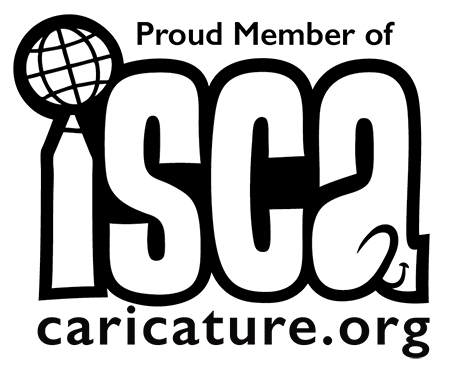An “Orphan Works Act” by Any Other Name…
Back in July I wrote this post about the “Orphan Works Act” that most illustrators, photographers and creators of intellectual property are rightfully up in arms about. Briefly it is legislation that will allow the free use of intellectual property like illustrations, pictures, writing and other examples to anyone who can demonstrate they made a “reasonably diligent effort” to find the owner of said works. “Reasonably diligent effort” is not specifically defined, and this law would not only open wide the free use of intellectual property but language in it would severely restrict the ability of the copyright holders of any work wrongly used to get paid properly or to financially punish the offender. In essence, anyone could come along and steal an image, say they tried but could not find the owner of it, and then even IF the owner of the image manages to both discover they stole it and prove they didn’t try hard enough to find them, they will likely end up paying no more than they would have originally paid to use it in the first place. Why would anybody bother to pay for the copyright to an image when they could role the dice and, at worst, end up with the same cost?
The bill has now morphed into the “Copyright Modernization Act”, which is just the same wolf in a different sheep outfit. This is the latest from the Illustrator’s Partnership, an organization that monitors developments in the illustration world:
_______________________________
FROM THE ILLUSTRATORS’ PARTNERSHIP
Sugar Coating the Orphan Works Act
The new Copyright Modernization Act sugarcoats the Orphan Works bill by proposing to consider “Remedies for Small Copyright Claims.” We’ve already noted the problems this raises in our March 2 post, “No Time to Go Wobbly”:
http://www.illustratorspartnership.org/01_topics/article.php?searchterm=00182
??ᬨ‚Ć
and in our testimony before the House IP Subcommittee March 29:
http://www.illustratorspartnership.org/01_topics/article.php?searchterm=00202
http://www.illustratorspartnership.org/01_topics/article.php?searchterm=00201.
At that hearing, we were asked to testify about “small dollar” infringement remedies without mentioning Orphan Works – as if the subject was separate from the OW bill. We insisted that the two proposals were linked and testified to that effect. Now it’s clear they are linked: see page 95-96 of The Copyright Modernization Act: Sec. 204. Inquiry on Remedies for Small Copyright Claims.
Section 204 requires the Copyright Office to conduct a year-long feasibility study,??ᬨ‚Ć to begin “not later than 1 year after the date of the enactment of this Act,” and to submit to Congress “such recommendations [for copyright Small Claims remedies] that the Register [of Copyrights] considers appropriate.”
In other words, pass the bill first, then conduct the study.
Let’s consider a possible scenario:
- The Copyright Modernization Act is rammed through. Congress acknowledges that infringement cases will multiply.
- But not to worry, they’re considering “remedies.”
- Once the bill is passed, the Copyright Office begins its study.
- A year later, they conclude it’s not economically feasible to create an entirely new branch of the federal judiciary system to handle small copyright disputes.
- Enjoy your “Modern Copyright” law,??ᬨ‚Ć folks.
Since Congress concedes that an Orphan works bill will increase infringement litigation, lawmakers should delay any further discussion of this legislation until after the feasibility study has been conducted and its recommendations budgeted and implemented. It’s transparently unwise to legalize the abuse of private property on the premise that you might create some undefined “remedies” to handle the abuse.
?¬¢‚Äö?ᬮ” Brad Holland and Cynthia Turner, for the Board of the Illustrators’ Partnership
_________________________________
It’s obvious how dangerous this is, and how damaging it could be to the livelihood of artists, designers, writer and creators everywhere. The burden would be on creators to somehow mark every piece of work or register every creative work with some agency that hasn’t even been created yet so there can be no excuse for not finding them, but this does not take into account third parties that stal the image and remove the signature or do not credit the creator. Without a clear course and specific requirements for making a “reasonable search”, how many image users will do it, especially when there are no penalties if they do not make a search at all?
If you are an illustrator, cartoonist, writer or other creative professional, please do not take this lying down. Write your federal representatives and let them know how damaging this would be for you. The only people this law benefits are copyright thieves, who can act with relative impunity and the buyers of creative works, who can now take what they want and at worst pay the same amount of money for it later.
Comments
Tom's Newsletter!
Sign up for Tom's FREE newsletter:
Categories
- Classic Rock Sketch Series (60)
- Daily Coronacature (146)
- Freelancing (173)
- General (1,658)
- Illustration Throwback Thursday (107)
- It's All Geek to Me! (53)
- Just Because… (1)
- MAD Magazine (918)
- Mailbag (691)
- Monday MADness (454)
- News (1,044)
- On the Drawing Board (160)
- Presidential Caricatures (47)
- Sketch O'The Week (849)
- Stuff from my Studio (21)
- Surf's Up Dept. (29)
- Tales from the Theme Park (17)
- Tom's MADness! (149)
- Tutorials (18)
- Wall of Shame (17)










Thanks so much for posting this, Tom. I’ve been meaning to post about it on my own blog but never found time to research it adequately. So I’ll just link to your post. Thanks for helping make everyone aware!
hope we can beat this bill.
This is a really scary stuff. The registry create insurmountable obstacles for most small artists and a loss of control over our own art.
Thanks for stepping up.
Val